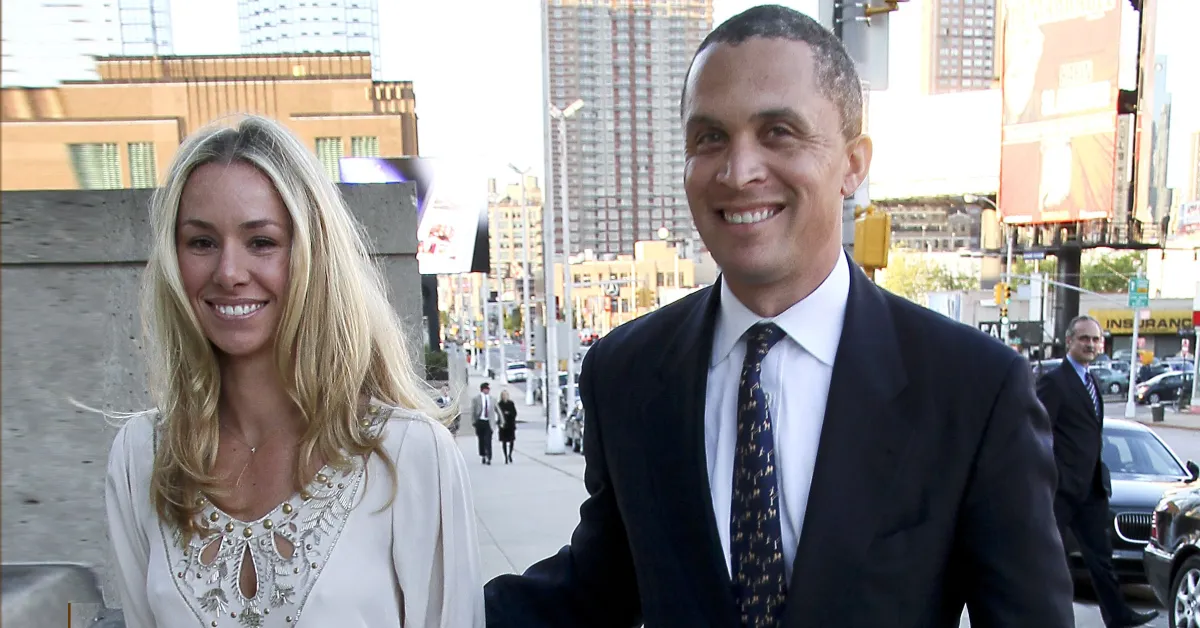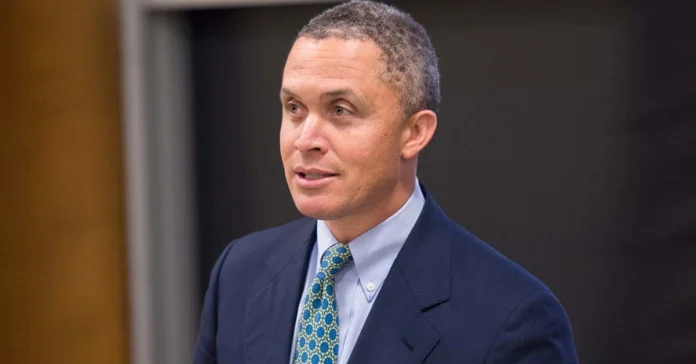Harold Ford Jr. stands as a man of many firsts. Born into a political family in Memphis, this former Congressman blazed his own trail through politics, finance, and media. His story weaves through the halls of Congress, Wall Street boardrooms, and television studios – a journey marked by both triumphs and setbacks.
Who Is Harold Ford Jr.?
Harold Eugene Ford Jr. made history as the youngest Black member of Congress when he won election at age 26. The Tennessee Democrat served five terms in the U.S. House of Representatives before mounting an unsuccessful but closely watched Senate campaign. After politics, Ford rebuilt his career in finance at Morgan Stanley and later PNC Bank, while also becoming a familiar face on news programs from NBC to Fox News. His path from Memphis politics to national prominence shows how a political legacy can evolve across generations.
Early Years & Family Roots
Memphis shaped Ford from his earliest days. Born May 11, 1970, he grew up watching his father, Harold Ford Sr., serve as the first Black Congressman from Tennessee. The Ford name carried weight in Memphis politics, creating both opportunities and expectations for young Harold. As a child, he often accompanied his father to Washington, gaining an early education in political life.
“When I was four years old, I went to the House floor with my dad,” Ford once recalled. “I looked around and said, ‘This is what I want to be when I grow up.'”
The Ford political dynasty ran deep in Memphis. His grandfather owned a funeral home business that became the family’s economic foundation. This background taught Ford about community service and building relationships – skills that would later define his political approach.
Growing up in a politically active Black family during the 1970s and 1980s also exposed Ford to the ongoing civil rights movement. These experiences formed his pragmatic, coalition-building approach to politics that would later distinguish him from both his father and many of his congressional colleagues.
Education & Legal Training
Ford built an impressive academic foundation. He graduated from St. Albans School in Washington, D.C., before earning his Bachelor of Arts degree in American history from the University of Pennsylvania in 1992. His education continued at the University of Michigan Law School, where he received his Juris Doctor in 1996.
Though his academic credentials impressed many, Ford faced an early career hurdle when he failed the Tennessee bar exam. Rather than hiding this setback, he acknowledged it openly during his first congressional campaign – a move that showed voters his willingness to own his mistakes.
During college and law school, Ford held several internships that broadened his political experience. He worked on the House Budget Committee and for the Clinton administration, gaining valuable insights into the workings of government before launching his political career.
Rise in the U.S. House of Representatives
When his father decided not to seek reelection in 1996, 26-year-old Harold Jr. saw his opportunity. He ran for Tennessee’s 9th congressional district seat and won, becoming the youngest member of the 105th Congress. His victory also marked the first time an African American succeeded a parent in Congress.
In the House, Ford quickly established himself as a centrist Democrat who could work across party lines. He joined the Blue Dog Coalition, a group of moderate Democrats focused on fiscal responsibility. His committee assignments included the Budget Committee and Financial Services Committee, where he worked on issues affecting his Memphis district.
Ford’s voting record reflected his moderate stance. He supported welfare reform and backed some Republican initiatives while maintaining core Democratic positions on issues like education and healthcare. This pragmatic approach helped him win reelection four times in a district that was growing more politically diverse.
As his profile grew, Ford earned leadership positions within the Democratic Party. He delivered the keynote address at the 2000 Democratic National Convention and later served as chair of the Democratic Leadership Council from 2003 to 2005. These roles positioned him as a rising star with potential for higher office.
2006 Senate Campaign & Lessons Learned
Ford’s ambitions reached beyond the House. When Republican Senator Bill Frist announced he would not seek reelection in 2006, Ford saw his chance to make history again, potentially becoming the first Black Senator from Tennessee since Reconstruction.
The primary campaign showcased Ford’s political strengths. He easily won the Democratic nomination and mounted a competitive race in a traditionally Republican state. His campaign focused on practical issues like healthcare costs and economic opportunity while emphasizing his moderate voting record.
The general election against Republican Bob Corker became one of the most closely watched races of 2006. Ford’s campaign gained national attention, but controversy emerged when the Republican National Committee aired what many considered a racially charged advertisement suggesting Ford attended “Playboy parties.” The ad concluded with a white woman saying, “Call me, Harold” – playing into old Southern racial stereotypes about Black men and white women.
Despite running a strong campaign, Ford lost narrowly to Corker by about three percentage points. The defeat marked a turning point in his career. Rather than pursuing another political office immediately, Ford chose to reinvent himself outside elected politics.
Reinventing a Career: Finance & Media
Wall Street & PNC
After leaving Congress, Ford leveraged his financial policy experience and connections to build a career on Wall Street. He joined Merrill Lynch in 2007 as a vice chairman and senior policy advisor. When Bank of America acquired Merrill Lynch during the 2008 financial crisis, Ford continued in a similar role.
In 2011, Ford moved to Morgan Stanley as a managing director, focusing on global client relationships. His political background and financial knowledge made him valuable in connecting the banking giant with both public and private sector clients.
More recently, Ford joined PNC Financial Services Group as vice chairman of Corporate and Institutional Banking. In this role, he helps guide the bank’s relationships with corporations, government agencies, and other institutions, putting his political and financial experience to work in the banking sector.
On-Air Pundit
While building his finance career, Ford also became a prominent media commentator. His moderate political views and articulate speaking style made him appealing to news networks seeking balanced political analysis.
He served as a political contributor for NBC News and MSNBC from 2008 to 2021, regularly appearing on programs like “Morning Joe” and “Meet the Press.” His willingness to critique both parties established him as a thoughtful, independent voice in political media.
In 2021, Ford joined Fox News as a contributor and became a co-host on “The Five,” the network’s popular afternoon talk show. This move surprised some, given his Democratic background, but it aligned with his history of working across partisan lines. On the program, he often provides counterpoints to his more conservative co-hosts while maintaining a respectful tone.
Personal Life & Off-Camera Moments
Beyond politics and finance, Ford built a fulfilling family life. In 2008, he married Emily Threlkeld, who worked in public relations for Carolina Herrera. The couple has two children and makes their home in New York City, though Ford maintains connections to his native Memphis.

Ford authored a memoir titled “More Davids Than Goliaths” in 2010, reflecting on his upbringing, political career, and vision for America. The book reveals personal aspects of his life rarely seen in his public persona, including the strong influence of his mother, Dorothy, whom he credits with teaching him resilience.
Despite his busy professional schedule, Ford stays active in community service. He has taught at Vanderbilt University and the University of Michigan, sharing his political and business experience with students. He also serves on several corporate and nonprofit boards, focusing on education and economic opportunity.
Legacy, Impact & What’s Next
Ford’s career defies simple categorization. As a congressman, he broke barriers as the youngest Black member and showed how a new generation could build on family political legacies. His centrist approach demonstrated how politicians can work across party lines even in polarized times.
His post-congressional career shows how public service skills transfer to private sector success. By combining financial work with media commentary, Ford maintained public influence while building new expertise outside elected office.
For young Black politicians, Ford provides a template for navigating predominantly white institutions while maintaining authentic connections to the community. His ability to speak to diverse audiences and build broad coalitions influenced many who came after him.
What comes next remains an open question. At 55, Ford has time for another career chapter, whether returning to politics, expanding his corporate role, or focusing on philanthropy. Whatever path he chooses, his journey from Memphis to Capitol Hill and beyond shows how political lives evolve in modern America.
Ford once said, “I believe in an America where opportunity is abundant for those willing to work.” His career exemplifies this belief, showing how talent, hard work, and adaptability can overcome setbacks and open new doors of opportunity.




